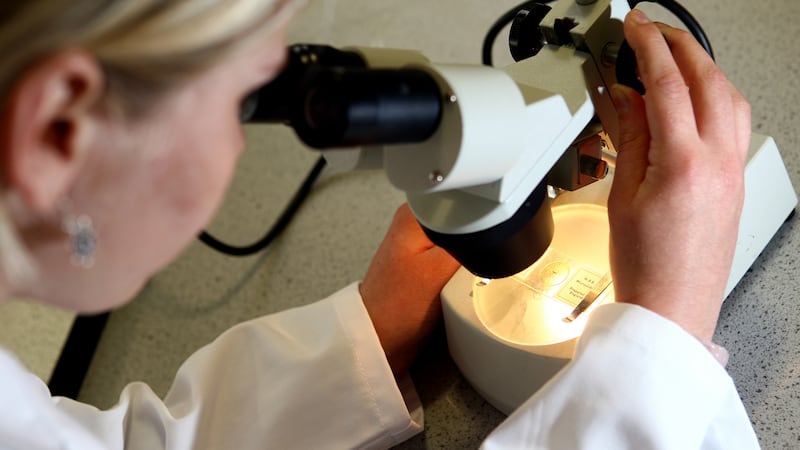The current impasse in relations between Sinn Féin and the Democratic Unionist Party is a source of concern for everyone living in Northern Ireland. There is no devolved government and it is obvious that Northern Ireland is not going to progress to its full potential socially, economically and politically until a ‘mechanism’ is found to resolve contentious issues between parties.
With this thought in mind, I would offer to them the experience of Dungannon District Councillors in 1989. At that time, town residents had come through more than 20 years of serious societal upheaval. Community tension that began with deep political and sectarian division regarding the allocation of houses, reinforced later by an intensification of strife in the community when the town hosted the first Civil Rights March, in August 1968, and deepened further in the 1970s and 1980s over the morality, or otherwise, of the IRA’s campaign and the British government’s response to it.
The district’s councillors were just as divided on the issues as the electorate and the gap between them was compounded by the fact that although there was a majority of nationalists in the district the council had always had a unionist chairman. The chairmanship issue mattered in the divided town. No-one wanted to give way on the issue. But, how to overcome the impasse and maybe ease tension in the town? A little creative thinking and goodwill locally on all sides in 1989 came up with a solution. (1) Establish a representative Special Committee to examine the issue. (2) Let it reach agreement on a compromise solution. On the particular issue, a deal to rotate the chairmanship between the unionist and nationalist members every six months. Each side to select its nominee for chairperson. (3) The ‘special committee had delivered so retain it as a ‘mechanism’ to examine other contentious issues and recommend solutions to the full council.
The special committee was a simple idea but it worked by drawing on an underlying reservoir of goodwill in the community.
It didn’t bring an end to the then ongoing violence in the area but the ‘special committee mechanism’ that devised ‘responsibility sharing’ did play a part in easing tension in the town at the time and, later, was instrumental in resolving other issues that arose.
In the present ‘impasse’ at Stormont where, despite appearances, there is also an underlying reservoir of goodwill, a similar ‘mechanism’, to the process devised in Dungannon to deal with its particular problem, might be an idea worth considering to resolve current contentious ‘rights issues’.
MICHAEL McLOUGHLIN
Dungannon, Co Tyrone
True show of solidarity
RECENTLY workers from the leisure centres on the Falls and Shankill held simultaneous protests against the continuing privatisation of these facilities that is inevitably leading to job losses, an attack on workers’ conditions and higher costs for the public. Following this true show of working-class solidarity was witnessed as both protests marched to the Northumberland Street ‘peace wall’ and together held a joint protest. While this protest was organised with a specific issue at its heart, we must now ask questions of the trade union movement, where is your fight against welfare reform?
With the Stormont circus now on intermission for whatever time they feel necessary, a break from the post-Good Friday Agreement institutionalised sectarian politics gives the trade union movement the most opportune time to organise a mass opposition against welfare reform.
When it comes to welfare reform, the politics of Stormont sometimes makes it confusing for many people to identify who the real enemy is. The ‘one for me one for you’ political ethos and back room deals that are engaged by the mainstream Stormont parties combined with the ‘sectarian card’ that they are not afraid to use to divide both communities when it serves their political purpose, makes it impossible at times for the workers to manoeuvre around.
We have recently witnessed the real and destructive aspects of welfare reform. The economic attack on the working class has only just begun; the social and economic deprivation that blights are communities is only going to get worse.
The trade union movement is now in the perfect position to organise against this.
JOE MATTHEWS
Belfast BT12
Refreshing honesty
How lucky I am to live in the island of Ireland. One of the few places in the west where one has access to proper independent investigative journalism. Reading Tom Collins’s article (April 17) is refreshing for its honesty and journalistic integrity. Too often in other publications and TV we are forced to watch/read the dominant narrative spilling from the mouths of intelligent people. You’re left wondering do they really believe the stuff they’re saying, or are they just going through the motions to keep their jobs? Either way it’s painful and leaves one feeling so helpless knowing we are careering towards a world war with a complicit media prepping our minds to make it all acceptable. So thanks Tom.
TONY DONNELLY
Castlecaulfield, Co Tyrone
Selective memory recall
The Orange Order says it cannot meet with Sinn Féin because of the murders carried out by the IRA.
Has the Orange Order completely forgotten about the murders carried out by the Glennane Gang, which included members of the UDR and the UVF, and all the other killings which took place throughout the Troubles?
N QUINN
Belfast BT10







